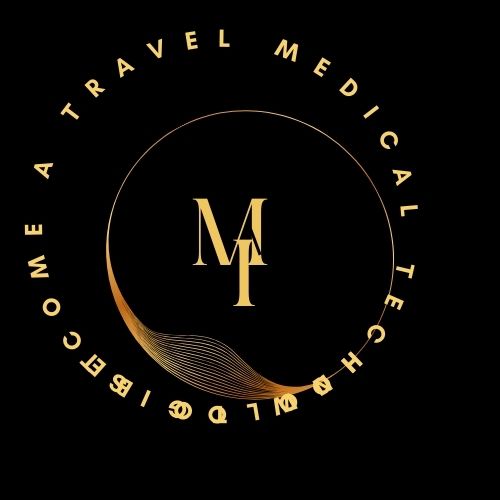Contents
- 1 How to become a travel medical technologist
- 2 Introduction of How to become a travel medical technologist
- 3 Understanding the Role of a Travel Medical Technologist
- 4 Benefits:
- 5 Challenges:
- 6 Educational Requirements
- 7 Certification and Licensure
- 8 Gaining Experience
- 9 Transitioning to Travel Medical Technology
- 10 Thriving as a Travel Medical Technologist
- 11 The Business Side of Travel Medical Technology
- 12 Challenges and Solutions in Travel Medical Technology
- 13 Future Trends in Travel Medical Technology
- 14 FAQs About Becoming a Travel Medical Technologist
- 15 H4: How long does it take to become a travel medical technologist?
- 16 H4: What is the average salary for a travel medical technologist?
- 17 H4: How long do typical travel assignments last?
- 18 H4: Can I choose where I want to work as a travel medical technologist?
- 19 H4: Is it possible to transition back to a permanent position after working as a traveler?
- 20 Conclusion of How to become a travel medical technologist
Discover the steps on how to become a travel medical technologist. Start your career in travel healthcare today!
How to become a travel medical technologist
How to Become a Travel Medical Technologist: A Comprehensive Guide
Introduction of How to become a travel medical technologist
How to become a travel medical technologist ? A career as a travel medical technologist provides a one-of-a-kind combination of professional development, adventure, and the opportunity to significantly alter healthcare in a variety of settings. Step by step instructions to turn into a movement clinical technologist is an excursion that includes specific preparation, thorough training, and an adoration for both clinical science and travel. Talented experts can use their knowledge in a variety of medical offices across the country to address basic staffing requirements while simultaneously interacting with a variety of workplaces and societies.
Understanding the Role of a Travel Medical Technologist
What is a Medical Technologist?
By carrying out intricate laboratory tests that aid in the diagnosis, treatment, and prevention of diseases, a medical technologist—also known as a clinical laboratory scientist—serves as an essential component of the healthcare system. Their obligations include: How to become a travel medical technologist
- Analyzing body fluids, tissues, and cells
- Operating sophisticated laboratory equipment
- Interpreting test results
- Ensuring quality control in laboratory procedures
- Collaborating with healthcare professionals to provide patient care
The Travel Aspect
Travel medical technologists perform these same duties but in temporary positions at various healthcare facilities across the country. This role offers unique benefits and challenges: How to become a travel medical technologist
Benefits:
- Exposure to diverse healthcare settings
- Higher pay rates compared to permanent positions
- Opportunities to explore different parts of the country
- Professional growth through varied experiences
Challenges:
- Frequent relocation
- Adapting to new work environments quickly
- Maintaining work-life balance while traveling
Demand for Travel Medical Technologists
The demand for travel medical technologists has been steadily increasing due to several factors: How to become a travel medical technologist
- Aging population requiring more medical tests
- Advancements in medical technology creating new testing procedures
- Staffing shortages in rural and underserved areas
- Seasonal fluctuations in healthcare needs
From 2019 to 2029, employment of clinical laboratory technologists and technicians is expected to rise by 7%, faster than the average for all occupations, according to the Bureau of Labor Statistics.
| Year | Projected Employment | Percent Change |
|---|---|---|
| 2019 | 337,800 | – |
| 2029 | 361,400 | +7% |
Source: U.S. Bureau of Labor Statistics
Educational Requirements
Academic Pathways
To become a travel medical technologist, you’ll need to complete the following educational steps:
- High School Diploma or Equivalent
- Focus on science courses like biology, chemistry, and mathematics
- Bachelor’s Degree
- Major in Clinical Innovation, Clinical Research facility Science, or a connected field The typical duration of programs is four years. The National Accrediting Agency for Clinical Laboratory Sciences (NAACLS) is a good place to start.
- Alternative Route: Associate’s Degree + Bachelor’s Degree
- Complete an associate’s degree in Medical Laboratory Technology (2 years)
- Gain work experience as a medical lab technician
- Complete a bridge program to earn a bachelor’s degree in Medical Technology (2 additional years)
Key Coursework
Your educational program should include courses such as:
- Clinical Chemistry
- Hematology
- Immunology
- Microbiology
- Molecular Biology
- Laboratory Management
- Biostatistics
- Medical Ethics
Clinical Training
In addition to classroom learning, your program should include extensive hands-on clinical training:
- Typically lasts 6-12 months
- Conducted in hospital laboratories or other healthcare settings
- Provides experience with various laboratory procedures and equipment
- Offers exposure to different specialties within medical technology
Continuing Education
To maintain certification and stay current in the field, travel medical technologists must engage in continuing education:
- each year, complete a certain number of credits for continuing education. Participate in seminars, conferences, and workshops. Take part in webinars and online courses. Read professional publications and journals.
Certification and Licensure
National Certification
National certification is highly recommended and frequently required by employers, though it is not always required. The primary certifying organizations are:
- American Society for Clinical Pathology (ASCP) Board of Certification
- Offers the Clinical Lab Researcher (MLS) affirmation Requires a four year college education and clinical preparation The exam covers topics like chemistry, hematology, microbiology, blood banking, and laboratory operations.
- American Medical Technologists (AMT)
- Offers the Medical Technologist (MT) certification
- Requires a bachelor’s degree or equivalent education and experience
- Exam covers similar areas to the ASCP certification
State Licensure
Licensure requirements vary by state:
- Some states require a license to practice as a medical technologist
- Others recognize national certification as sufficient
- A few states have no specific requirements
It’s important to research the requirements for each state you plan to work in as a travel medical technologist. Some states with licensing requirements include:
- California
- Florida
- Hawaii
- Louisiana
- Montana
- Nevada
- New York
- North Dakota
- Rhode Island
- Tennessee
- West Virginia
Maintaining Certification and Licensure
To keep your certification and license current:
- Complete required continuing education units (CEUs)
- Renew certification every 2-3 years, depending on the certifying body
- Pay renewal fees
- Stay informed about changes in state licensing requirements
Gaining Experience
Entry-Level Positions
Before embarking on a career as a travel medical technologist, it’s crucial to gain solid experience in a permanent position:
- Hospital Laboratories
- Offer exposure to a wide range of tests and procedures
- Provide opportunities to work in different departments
- Reference Laboratories
- Specialize in high-volume testing
- May offer exposure to more specialized tests
- Clinics and Physician Offices
- Provide experience in point-of-care testing
- Offer opportunities for direct patient interaction
Specializations
Consider specializing in a particular area of medical technology to enhance your career prospects:
- Blood Banking
- Clinical Chemistry
- Cytotechnology
- Hematology
- Immunology
- Microbiology
- Molecular Biology
Building a Strong Foundation
To prepare for a career in travel medical technology:
- Gain at least 2-3 years of experience in a permanent position
- Develop proficiency in multiple areas of the laboratory
- Familiarize yourself with various laboratory information systems (LIS)
- Cultivate adaptability and strong communication skills
- Build a network of professional contacts in the field
Transitioning to Travel Medical Technology
Researching Travel Agencies
When you’re ready to transition to travel work, research and compare different healthcare staffing agencies:
- Reputation and Reviews
- Check online reviews and ratings
- Ask for references from current or former travel medical technologists
- Job Opportunities
- Variety of locations and settings offered
- Frequency of available assignments
- Benefits and Support
- Health insurance
- Housing assistance or stipends
- Travel reimbursement
- 24/7 support for travelers
- Pay Rates and Bonuses
- Competitive hourly rates
- Completion bonuses
- Referral bonuses
Preparing for Travel Assignments
Before accepting your first travel assignment:
- Organize Your Documentation
- Updated resume
- Copies of degrees, certifications, and licenses
- Immunization records
- Professional references
- Consider Housing Options
- Agency-provided housing
- Housing stipend for self-arranged accommodations
- Extended stay hotels or short-term rentals
- Develop a Travel Strategy
- Decide on a home base between assignments
- Plan for storage of personal belongings
- Consider transportation needs (personal vehicle vs. rental cars)
- Financial Planning
- Understand tax implications of travel work
- Set up a system for tracking expenses
- Plan for periods between assignments
Your First Assignment
When starting your first travel assignment:
- Arrive Early
- Familiarize yourself with the area
- Ensure your housing is set up
- Orientation
- Pay close attention to facility-specific procedures
- Ask questions and clarify expectations
- Adapt Quickly
- Be flexible and open to new ways of doing things
- Demonstrate your ability to learn and integrate quickly
- Network
- Build relationships with permanent staff and other travelers
- These connections can lead to future opportunities or valuable references
Thriving as a Travel Medical Technologist
Maximizing Your Experience
To make the most of your travel assignments:
- Embrace Diversity
- Learn from different workplace cultures and practices
- Appreciate regional differences in healthcare delivery
- Continuous Learning
- Take advantage of training opportunities at each facility
- Stay updated on industry trends and new technologies
- Problem-Solving
- Be proactive in addressing challenges
- Offer solutions and improvements when appropriate
- Maintain Professionalism
- Consistently deliver high-quality work
- Build a reputation as a reliable and skilled traveler
Managing Work-Life Balance
Balancing work and personal life as a traveler:
- Establish a Routine
- Create a sense of normalcy in each new location
- Explore Your Surroundings
- Take advantage of your free time to explore new areas
- Stay Connected
- Maintain relationships with family and friends back home
- Use technology to stay in touch
- Self-Care
- Prioritize your physical and mental health
- Develop stress management techniques
Career Advancement
Opportunities for growth in travel medical technology:
- Specialization
- Develop expertise in high-demand areas
- Leadership Roles
- Consider positions like lead technologist or interim laboratory manager
- Education and Training
- Pursue advanced degrees or additional certifications
- Consider roles in teaching or training other medical technologists
- Consulting
- Use your diverse experience to consult on laboratory operations and improvements
The Business Side of Travel Medical Technology
Understanding Compensation
Travel medical technologists often earn more than their permanent counterparts due to:
- Higher Hourly Rates
- Tax-Free Stipends for Housing and Meals
- Completion Bonuses
- Overtime Opportunities
It’s important to understand the structure of your compensation package: How to become a travel medical technologist
| Component | Description |
|---|---|
| Base Rate | Hourly wage for worked hours |
| Housing Stipend | Tax-free allowance for housing expenses |
| Meal Per Diem | Tax-free allowance for meals |
| Travel Reimbursement | Coverage for travel to and from assignments |
| Benefits | Health insurance, 401(k), etc. |
Tax Considerations
Travel medical technologists face unique tax situations:
- Maintaining a Tax Home
- Understand IRS requirements for tax-free stipends
- Multiple State Taxes
- You may need to file taxes in multiple states
- Keeping Records
- Track all work-related expenses
- Save receipts for housing, meals, and travel
- Consider Professional Help
- Work with a tax professional familiar with travel healthcare
Contract Negotiations
When reviewing contracts for travel assignments:
- Understand All Terms
- Pay rates and bonuses
- Assignment duration
- Cancellation policies
- Guaranteed hours
- Clarify Expectations
- Job duties and responsibilities
- Work schedule and overtime policies
- Know Your Rights
- Familiarize yourself with labor laws in the assignment state
- Don’t Hesitate to Negotiate
- Advocate for fair compensation and terms
Challenges and Solutions in Travel Medical Technology
Common Challenges
- Frequent Relocation
- Solution: Develop efficient packing and moving strategies
- Consider using a travel trailer or RV for more consistency in living arrangements
- Adapting to New Work Environments
- Solution: Stay flexible and open-minded
- Develop a personal orientation checklist to quickly acclimate to new settings
- Maintaining Relationships
- Solution: Use technology to stay connected
- Plan regular visits or meetups with loved ones
- Burnout
- Solution: Set boundaries and take time off between assignments
- Practice self-care and stress management techniques
Staying Current in a Rapidly Evolving Field
The field of medical technology is constantly advancing. Stay current by:
- Attending Professional Conferences
- American Society for Clinical Laboratory Science (ASCLS) Annual Meeting
- Clinical Laboratory Management Association (CLMA) KnowledgeLab
- Participating in Online Learning
- Webinars offered by professional organizations
- Online courses in emerging technologies
- Reading Industry Publications
- Clinical Laboratory News
- Medical Laboratory Observer
- Networking with Peers
- Join professional associations
- Participate in online forums and discussion groups
Future Trends in Travel Medical Technology
Technological Advancements
Stay informed about emerging technologies that may impact the field:
- Artificial Intelligence and Machine Learning
- Automated image analysis
- Predictive diagnostics
- Point-of-Care Testing
- Increased demand for rapid, bedside testing
- Molecular Diagnostics
- Expansion of genetic testing and personalized medicine
- Digital Pathology
- Remote viewing and analysis of pathology slides
Evolving Healthcare Landscape
Be prepared for changes in healthcare delivery:
- Telemedicine
- Impact on laboratory testing and result reporting
- Value-Based Care
- Focus on cost-effective testing and outcomes
- Population Health Management
- Increased emphasis on preventive screenings and health monitoring
- Consolidation of Healthcare Systems
- Potential for more standardized practices across facilities
FAQs About Becoming a Travel Medical Technologist
H4: How long does it take to become a travel medical technologist?
After high school, it typically takes about four to six years. Before switching to travel work, this includes four years of college for a bachelor’s degree and two to three years of experience in a permanent position.
H4: What is the average salary for a travel medical technologist?
Location, experience, and the specifics of the assignment all play a role in determining salaries. Travel medical technologists can expect to earn anywhere from $70,000 to $100,000 or more annually, including bonuses and stipends exempt from taxation.
H4: How long do typical travel assignments last?
The majority of travel assignments last 13 to 26 weeks, with 13 being the most typical length. Depending on the needs of the facility, some offer shorter or longer contracts.
H4: Can I choose where I want to work as a travel medical technologist?
Yes, you can choose where you work in a big way. Assignments can be chosen based on location, facility type, or departmental preferences. However, being adaptable can increase your job prospects.
H4: Is it possible to transition back to a permanent position after working as a traveler?
Absolutely. At facilities where they have completed assignments, many travelers eventually find permanent employment. You may be an appealing candidate for permanent positions thanks to the diverse experience you’ve gained traveling.
Conclusion of How to become a travel medical technologist
Starting a career as a travel medical technologist gives you the chance to have a significant impact on healthcare in a variety of settings, as well as the chance to grow professionally and personally. From acquiring the necessary education and certifications to navigating the unique challenges and opportunities of travel work, the essential steps to entering this dynamic field have been outlined in this comprehensive guide.
As you progress on this vocation way, recollect that accomplishment as a movement clinical technologist depends on your specialized abilities as well as on your versatility, correspondence capacities, and obligation to deep rooted learning. The field of medical technology is always changing, so those who are open to change and want to keep growing professionally will find new challenges and opportunities.
Travel medical technology offers a one-of-a-kind and satisfying professional journey, whether you are drawn to the variety of experiences, the possibility of higher earnings, or the chance to explore new places while advancing your career. You can build a successful and fulfilling career that combines your love of travel and new experiences with your passion for medical science by following the steps in this guide and remaining optimistic and flexible.
As you move into this thrilling field, recollect that each challenge is a chance for development, and each new task is an opportunity to grow your abilities and have an effect in persistent consideration. You are well-equipped to thrive in the dynamic field of travel medical technology if you are determined, eager to learn, and adventurous.
How to become a travel agent in tennessee



1 thought on “How to become a travel medical technologist”